.webp?width=900&name=Blog_Bottles%20on%20Conveyor%20Belt_900x450%20(1).webp)
Are you frustrated with the inefficiencies of hand labeling in your production line? Maybe you are grappling with escalating costs, plummeting output rates, inconsistent label quality, and a tangled workflow. If this sounds all too familiar, integrating a bottle label application machine into your setup can be a game-changer. A bottle labeling machine can significantly impact four crucial areas: reducing operational costs, ramping up your output speed, elevating the quality of your labels, and simplifying your production process for better efficiency and less stress. If you have been grappling with the limitations of hand labeling and are hungry for smarter, more sustainable label solutions, keep reading.
Understanding the Challenges
In industries like food and beverage, pharmaceuticals, and cosmetics, the labor-intensive task of hand-labeling bottles presents numerous challenges that intensify as production scales. These challenges not only impact efficiency and cost-effectiveness but also affect product quality and workflow.
Escalating Costs: One of the primary issues with manual labeling is the rising labor costs associated with increased production demands. For example, if a local brewery needed to double its workforce during a seasonal surge, it would significantly inflate labor expenses. The new staff would be primarily focused on manual labeling tasks, pushing up wages and heightening profit loss as errors in labeling led to substantial material wastage. In many industries, companies struggle with labor shortages, making it difficult to find and retain employees willing to perform repetitive, manual tasks.
Plummeting Output Rates: The manual labeling process inherently limits the number of bottles that can be processed by an individual worker each day, creating significant bottlenecks. This limitation severely hampers a business's ability to effectively scale operations and meet market demands. As production demands increase, the inability to boost output rates proportionally can lead to lost revenue and missed market opportunities.
Inconsistent Label Quality: Human error in manual labeling can significantly impact the aesthetic and functional qualities of a product. For instance, misaligned labels on cosmetic products have led to customer dissatisfaction and increased returns. This ultimately damages the brand reputation and raises compliance concerns within a tightly regulated industry.
Tangled Workflow: Manual labeling often disrupts the overall production flow, especially when significant manpower is concentrated at specific stages of the production line. For example, if a food processing plant that manually labels sauce bottles requires workers to frequently pause other essential tasks, it will see considerable delays and inefficiencies. This disruption hinders the smooth operational workflow that is necessary in high-demand environments.
The Case for Automation
Bottle labeling automation systems provide comprehensive label solutions to the challenges of manual labeling, revolutionizing production lines by improving efficiency, consistency, and reliability. As businesses expand and demand grows, the disadvantages of manual processes become increasingly clear. Automation not only reduces the dependency on manual labor, lowering labor costs and minimizing errors that cause material wastage but also optimizes the use of human resources for more critical tasks. This results in significant cost savings and more efficient resource utilization.
Automated label applicators ensure consistent label quality and adhere to regulatory standards, enhancing brand trust and customer satisfaction. They operate at consistent speeds, eliminating the bottlenecks associated with manual labeling and allowing for smoother and faster production. The ability to integrate seamlessly into existing production lines streamlines the workflow, reducing delays and improving production stages. This not only boosts productivity but also significantly enhances the overall operational workflow, making automated labeling machines an essential upgrade for modern manufacturing.
Transform Your Production With an Automatic Labeler
Integrating automated bottle labeling machines into your production line is not just about upgrading equipment — it is about transforming your entire production process. These label application machines bring benefits that address the core challenges of manual labeling processes. Let’s break down just a few of these benefits.
Reduce Cost

At first glance, you may have concerns about the upfront cost of purchasing a bottle label application machine. However, this should be viewed as a long-term investment that can deliver a rapid return on investment (ROI).
Labor Cost Reduction
Automated bottle labeling machines significantly streamline the labeling process, effectively eliminating the need for manual intervention. This automation translates into direct labor cost savings as fewer staff are required for the labeling task. According to the Human Capital Management Institute LLC, labor costs can account for as much as 70% of total business costs. This makes these savings extremely beneficial. Companies can then reallocate their workforce to more critical, value-adding activities, enhancing overall productivity and job satisfaction. Reducing labor cuts costs and decreases the expenses associated with employee turnover, training new staff, and managing benefits.
Minimization of Material Wastage
Precision is a distinct characteristic of automated labeling systems. These label application machines are engineered to apply labels with exact alignment and placement, drastically minimizing the risk of misaligned or improperly applied labels. By reducing material waste, businesses not only cut down on expenses but also reduce the need for rework and associated labor costs. Ultimately, this efficiency boosts the overall cost-effectiveness of production processes, making automated labeling an economically smart choice for companies looking to enhance their operational bottom line.
Increased Operational Efficiency
Automated bottle labeling machines are designed for consistency and speed, allowing them to operate at high speeds that manual processes cannot match. By optimizing the speed and efficiency of the labeling process, these label solutions enhance the overall throughput of the production line. A detailed cost-benefit analysis typically shows that the investment in automated label applicators can be recouped relatively quickly through improved production efficiencies and reduced operational costs. Over the long term, these efficiencies translate into significant competitive advantages, including the ability to respond more swiftly to market demands and scale operations without proportional increases in costs.
Increase Output
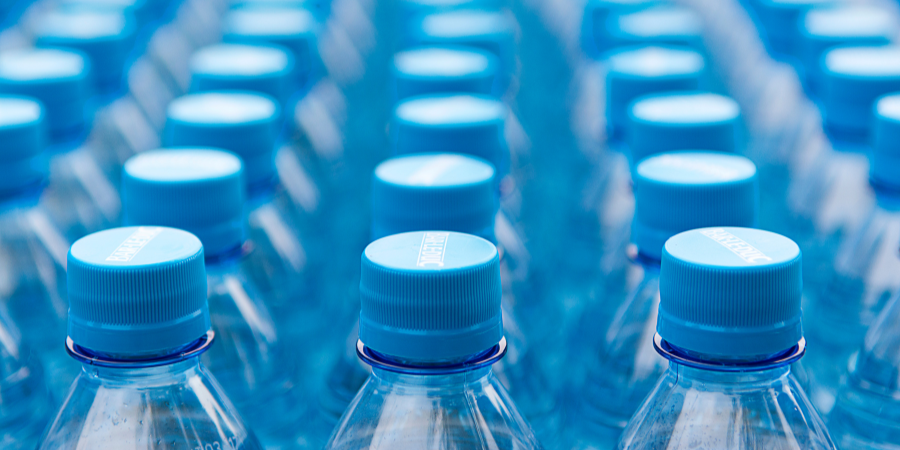
In the production world, time is of the essence. Meeting deadlines and filling orders on time and correctly is vital for maintaining a healthy cash flow and customer satisfaction. When it comes to output, a bottle label application machine is a powerhouse.
Consistent Labeling Process
Automated product labeling equipment is meticulously engineered to place labels precisely, ensuring each label is uniformly aligned and placed. This precision reduces the chance of human error, which is inevitable in manual processes and often leads to inconsistent labeling. This consistency is essential for maintaining product quality, which directly influences customer satisfaction and brand reputation. Consistent labeling is crucial in industries where compliance with strict regulatory standards is required. By ensuring that every product is labeled correctly, automated labeling machines help businesses adhere to industry regulations and avoid potential legal and financial penalties associated with non-compliance. This level of reliability and consistency not only supports a company's reputation but also instills a sense of trust in consumers.
Streamlined Production Workflow
Integrating bottle labeling machines into existing production lines transforms the overall manufacturing process by eliminating common bottlenecks associated with manual labeling tasks. These automatic labelers are designed to fit seamlessly into the production flow, complementing and enhancing the efficiency of other processes. Their ability to operate continuously without requiring frequent stops or interventions means that production can proceed without unnecessary interruptions. Its quick changeover capabilities allow for rapid adjustments between different products or label designs, which is particularly beneficial in environments that handle multiple product lines or frequent product changes. This flexibility ensures that the production line can quickly adapt to new requirements without substantial delays or productivity losses.
Scalability and Flexibility
Automated bottle labeling machines offer remarkable scalability and flexibility, which is crucial for businesses that experience fluctuations in production demand. These systems are adept at adjusting to various production volumes with ease, allowing companies to scale operations up or down without compromising efficiency or speed. These machines are able to handle a diverse range of bottle sizes, shapes, and label designs. This versatility is essential for manufacturers that produce multiple product lines or that frequently update packaging to reflect marketing campaigns or regulatory changes. Automated labeling application machines are designed for quick changeovers, which drastically reduces downtime between production runs. This capability ensures that switching from one product or label configuration to another is swift and seamless.
Real-Time Monitoring and Control
Modern automated bottle labeling machines are equipped with real-time monitoring, allowing operators to continuously view performance metrics and adjust operations to optimize efficiency and output. This real-time data is critical for identifying bottlenecks, anticipating maintenance needs, and improving overall productivity. Many automated label applicators include remote access and control features, enabling management to oversee and adjust the labeling process from any location. This flexibility is beneficial for businesses with multiple production sites or for managers who need to maintain oversight while away from the plant. Additionally, proactive maintenance features in these automatic labelers can detect operational abnormalities and perform self-diagnoses to prevent breakdowns before they occur, minimizing the risk of unexpected downtime.
Improve Quality

Quality is not a luxury but a necessity for many brands. Consumers, now more than ever, pay attention to the details. A crooked or bubbled label can send a message of carelessness and poor quality, affecting not just a single sale but your brand's reputation as a whole.
Precision Labeling
Automatic labelers excel in delivering unmatched precision in label application. This product labeling equipment consistently places, aligns, and orients labels on each bottle with exact precision, eliminating common labeling errors such as crooked, misaligned, or wrinkled labels. These defects can significantly impact the consumer's perception of product quality and can undermine brand integrity if they become frequent. By ensuring that each label is perfectly applied, automated label applicators enhance the aesthetic appeal of the products and contribute to their functionality, especially in cases where labels might include usage instructions or ingredient information that must remain legible and intact. This level of precision is crucial for maintaining the brand’s reputation for quality and ensuring that product information is conveyed clearly and effectively to consumers.
Compliance Assurance
In many industries, particularly those that are heavily regulated like pharmaceuticals, food and beverage, and cosmetics, meeting compliance standards for labeling is not just a matter of quality but a legal requirement. Automated labeling systems play a pivotal role in ensuring that businesses adhere to these strict regulatory standards. These systems are designed to apply labels in a manner that complies with all necessary legal stipulations. It also helps facilitate effective batch traceability. This traceability is vital for tracking products through the supply chain, which can be crucial during recalls or when verifying the product’s lifecycle. By ensuring accurate and compliant labeling, automated labeling machines reduce the risk of costly regulatory fines and help maintain the company’s standing with both regulators and customers. The ability to reliably meet these standards without human error reduces the risk and cost associated with potential compliance failures, providing an additional layer of security and reliability for businesses.
Consistency and Brand Integrity
Automated labelers play a crucial role in maintaining consistent label placement, alignment, and adherence across all products. This is vital for reinforcing brand integrity and identity. Uniformity ensures that every product that reaches the consumer upholds the same high standards, reflecting the brand’s commitment to quality and attention to detail. It helps strengthen brand identity by making the product instantly recognizable and reliable, which is essential in building customer loyalty. Automated label applicators can also integrate advanced security features into the labeling process, such as tamper-evident labels or serialization. These features are critical to ensure consumers receive genuine products, safeguarding both the brand’s reputation and consumer trust. In competitive markets, the ability to consistently deliver products that meet these standards can set a brand apart.
Easier Production
Nobody wants to work harder when they can work smarter. Introducing a bottle labeling machine into your production line takes a load off your staff, freeing them from the monotonous, repetitive task of hand labeling. With manual labor redirected to more skill-intensive tasks, job satisfaction can increase, often leading to higher employee retention rates.
The automation also makes it easier to scale your operations. Whether you are rolling out a new product or expanding to new markets, an automated system can adapt more readily than a manual one. The machine can be reprogrammed extremely quickly and easily if you need to update labels due to regulatory changes or rebranding.
Embrace Automated Bottle Labeling and Transform Your Business

If you are tired of the problems that come with hand labeling — high costs, low output, inconsistent quality, and complex workflows — then a bottle label application machine could be the solution you have been searching for. It is easy to get bogged down in the day-to-day struggles of hand labeling, high costs, low output, and compromised quality. But the solution can be as simple as adding a new piece of product labeling equipment to your production line and bringing about a transformative change that can elevate your entire operation.
As with any significant investment, you will want to approach this with as much information and expert advice as you can. To learn more about the transition to automatic bottle label application machines, schedule a consultation with our team of specialists. We can help you identify the best bottle labeling machine for your specific needs, offer financial planning guidance, and even help with integration strategies to ensure a smooth transition to automated labeling. Take the step today and transform your production line for business success.
.webp?width=200&height=114&name=2x-Packleader-logo-large%20(1).webp)

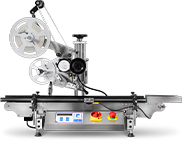
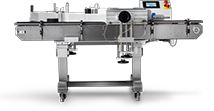
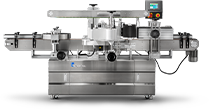
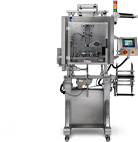
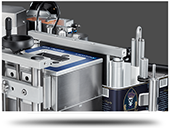
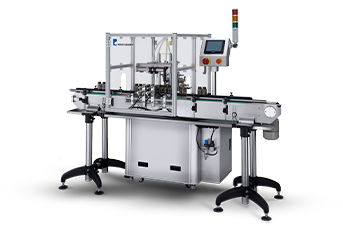
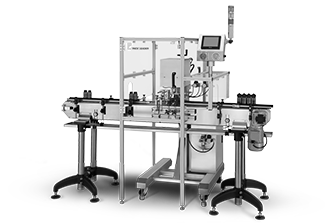
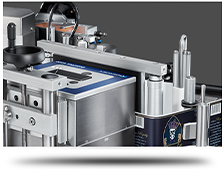





.webp?width=360&name=2x-color-logo%20(1).webp)